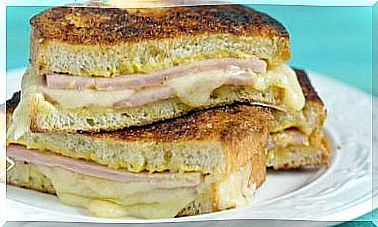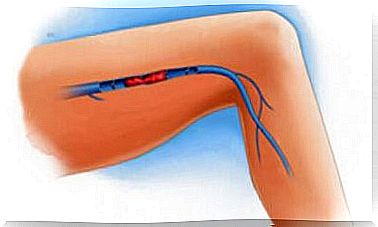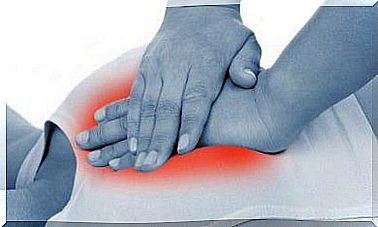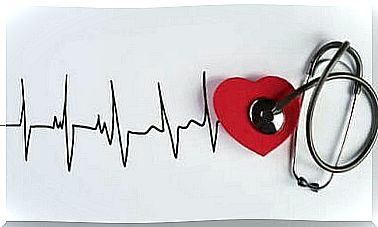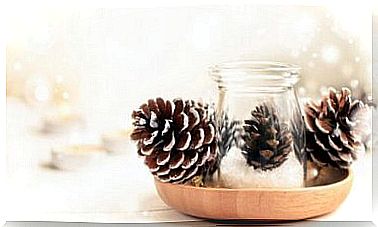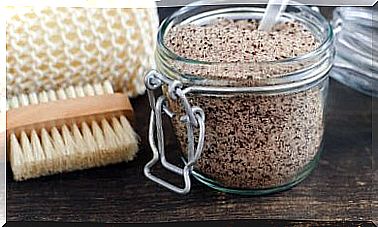4 Things To Avoid If You Have Colitis
Colitis is a condition that depends a lot on the way we eat, as well as our emotional quality of life. Go over some suggestions that can help you prevent and control this condition.
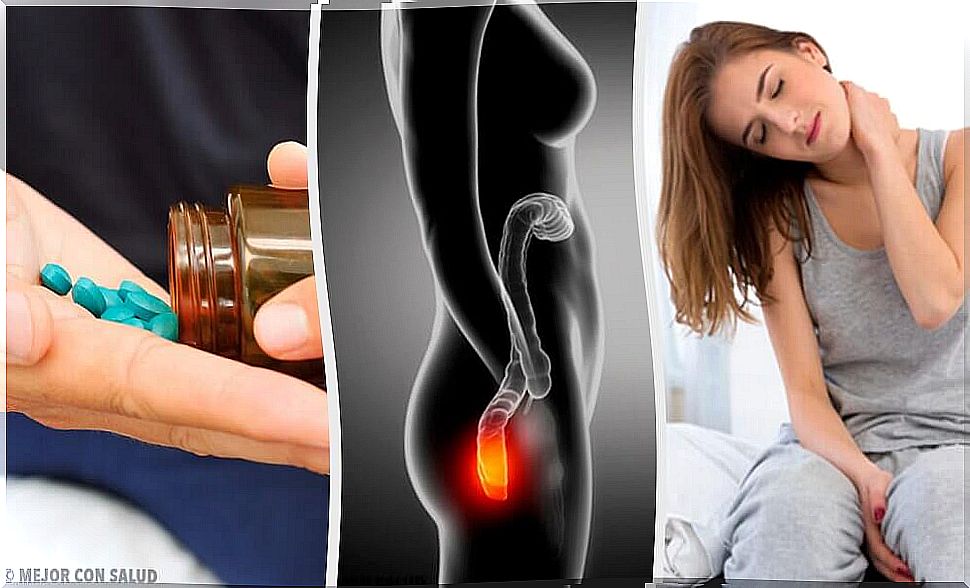
Colitis is inflammation of the large intestine, which is the colon. It is a very common disease among the inhabitants of large cities under great stress. Food is an essential factor in the treatment of colitis, in its recovery and in preventing illness.
Stress, sedentary life, and eating excess junk food, fat, soda and spicy foods all promote the development of this condition.
Symptoms of colitis
- Abdominal pain and distention
- Stool with blood
- Chills
- Dehydration
- Diarrhea
- Fever
What you should avoid if you have colitis
1. Certain foods

Avoiding the consumption of certain foods is essential to recover from this condition and so that your gut does not suffer from irreversible disorders. Fatty foods can speed up intestinal contractions and cause the body to react negatively.
You need to stay away from fried foods, meats with fatty and fast foods. You should avoid dairy products for a while after having colitis. If you have bowel problems, avoid irritating drinks like tea and coffee.
You can choose drinks such as water with lemon or herbal infusions, these help your body to detoxify quickly.
2. Stress-generating situations
Emotional disturbances produce overactive intestines by altering the function of the colon. They can be accompanied by diarrhea or constipation, which are the main symptoms of nervous colitis.
Adequate stress management at home or at work is essential to prevent symptoms from getting worse.
3. Sedentarism

Sedentary people are more likely to develop colitis, experts say. Therefore, it is highly recommended to practice sports every day to have stress and anxiety management. It is very beneficial to ride a bicycle, walk, swim, do gentle exercises, but do them with perseverance.
4. Self-medication
See your doctor if you have symptoms such as abdominal swelling, intermittent abdominal pain, and stool changes such as diarrhea with up to 3 bowel movements a day and constipation.
Avoid taking any medications, as other conditions can have symptoms similar to colitis and can make your condition worse.
Diet and food adapted to colitis
Prepare 5 or 6 meals in small batches and never skip breakfast, to start the day with energy. You should try a liquid diet. This may involve consuming natural water, apple juice, broth, or gelatin.
Breakfast
A cup of skim milk, a few slices of toast, and a slice of low fat leg or turkey. Another option can be low fat natural yogurt with cereal. A third option would be a cup of tea and whole wheat toast, with cream cheese, also low in fat.
If you want to incorporate fruit into breakfast, the most recommended are papaya, apple, pear, banana, peach or melon. You should avoid orange, kiwi, strawberry, and guava as they are very acidic and hamper digestion.
Lunch
Grilled or baked chicken with green salad, watercress and raw spinach seasoned with a teaspoon of olive oil. You can serve them with a slice of toasted wholemeal bread.
Having dinner
Pasta cooked with olive oil. As a second option, a cup of natural low fat yogurt or a piece of cream cheese with a spoonful of honey.
This is an example of a diet for breakfast, lunch, and dinner, but you can include snacks between each meal. In order not to spend too many hours without eating.
Snacks you can add between meals
- A glass of fruit juice, without sugar.
- A piece of fruit of 200 g. It can be an apple, a banana or a pear.
- A cup of tea and two whole grain toast.
You can do this weekly diet, but there are other foods that you should consider. Like fruits, vegetables, cooked pasta, rice. Chicken or low fat meat, potatoes, whole wheat bread, among others.
You can vary the dishes, make all kinds of salads and combine them as you wish. This diet suggestion is only a guide to what foods you can eat if you have colitis.
Other recommendations
- Take at least 2 liters of water or fruit per day.
- Chew well. Give the food a quiet moment and take a break of at least 15 minutes.
- Keep a fixed meal schedule and always try evacuation at the same time and without rushing.
- Avoid the use of laxatives in case of constipation, unless medically indicated.
If you follow these recommendations, adopt a healthy lifestyle, and maintain a balanced diet, you can make this condition more bearable, or even avoided. So change your habits, take care of your health!

